Translation
I work as a translator of literature, subtitles, gallery texts and academic essays.
Selected projects:

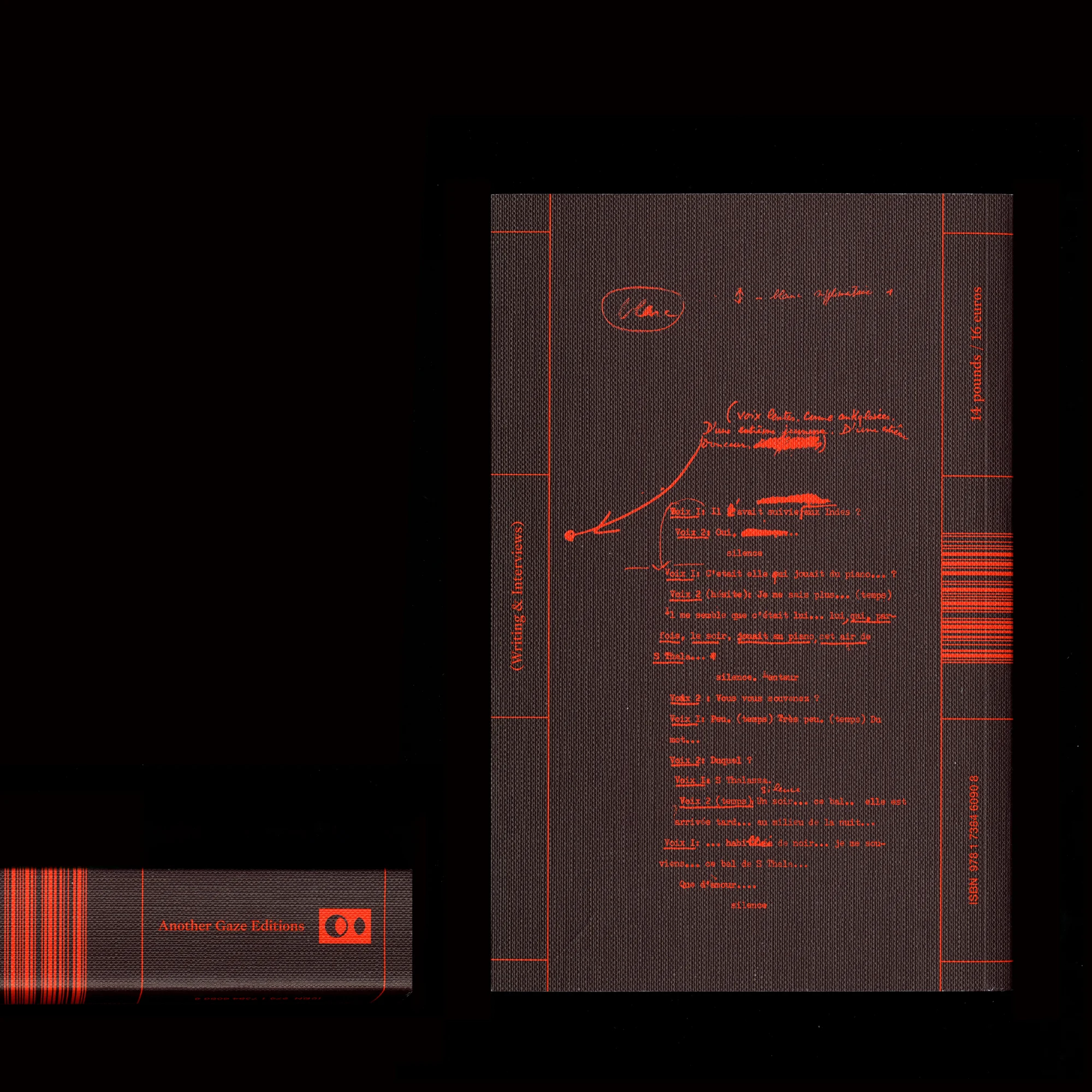
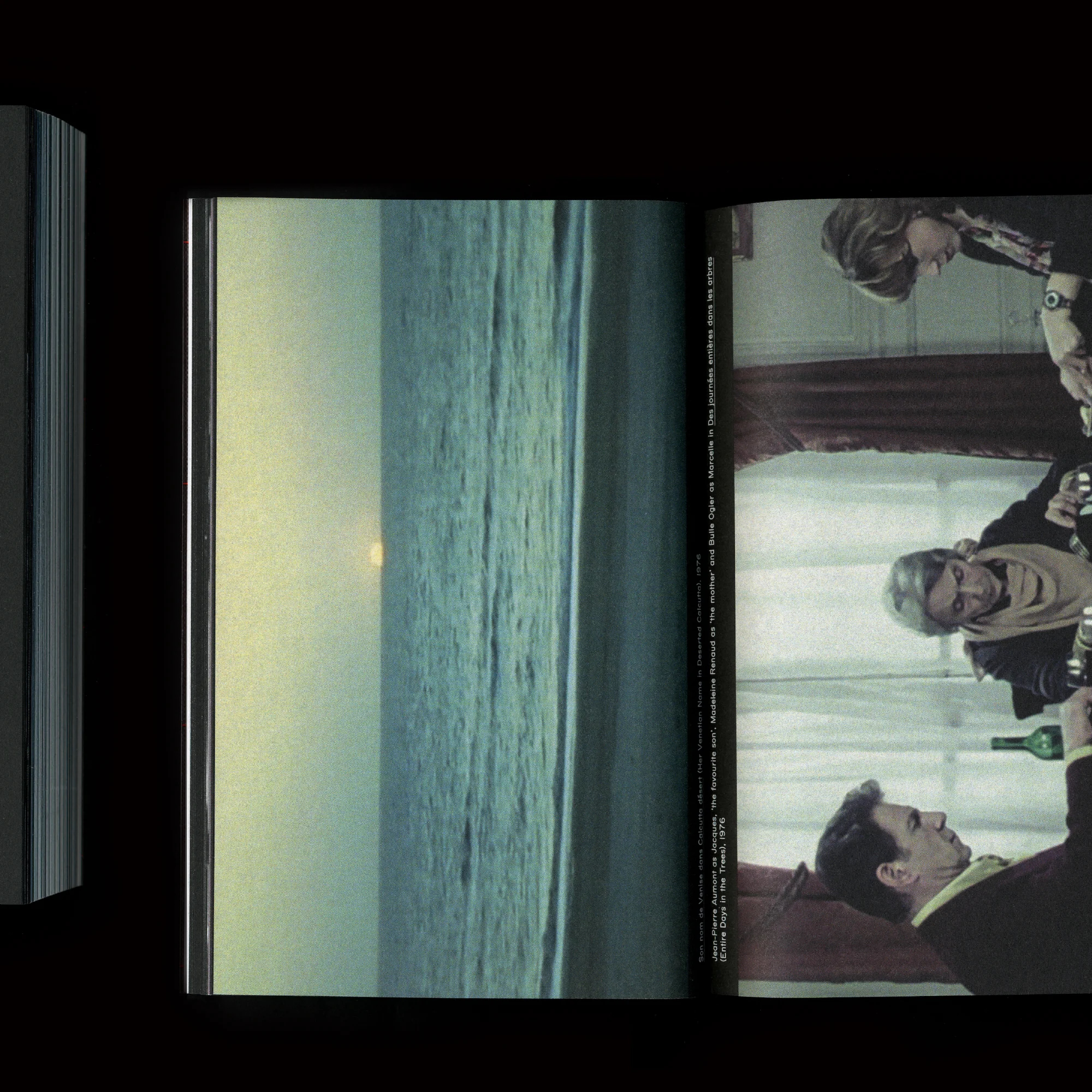
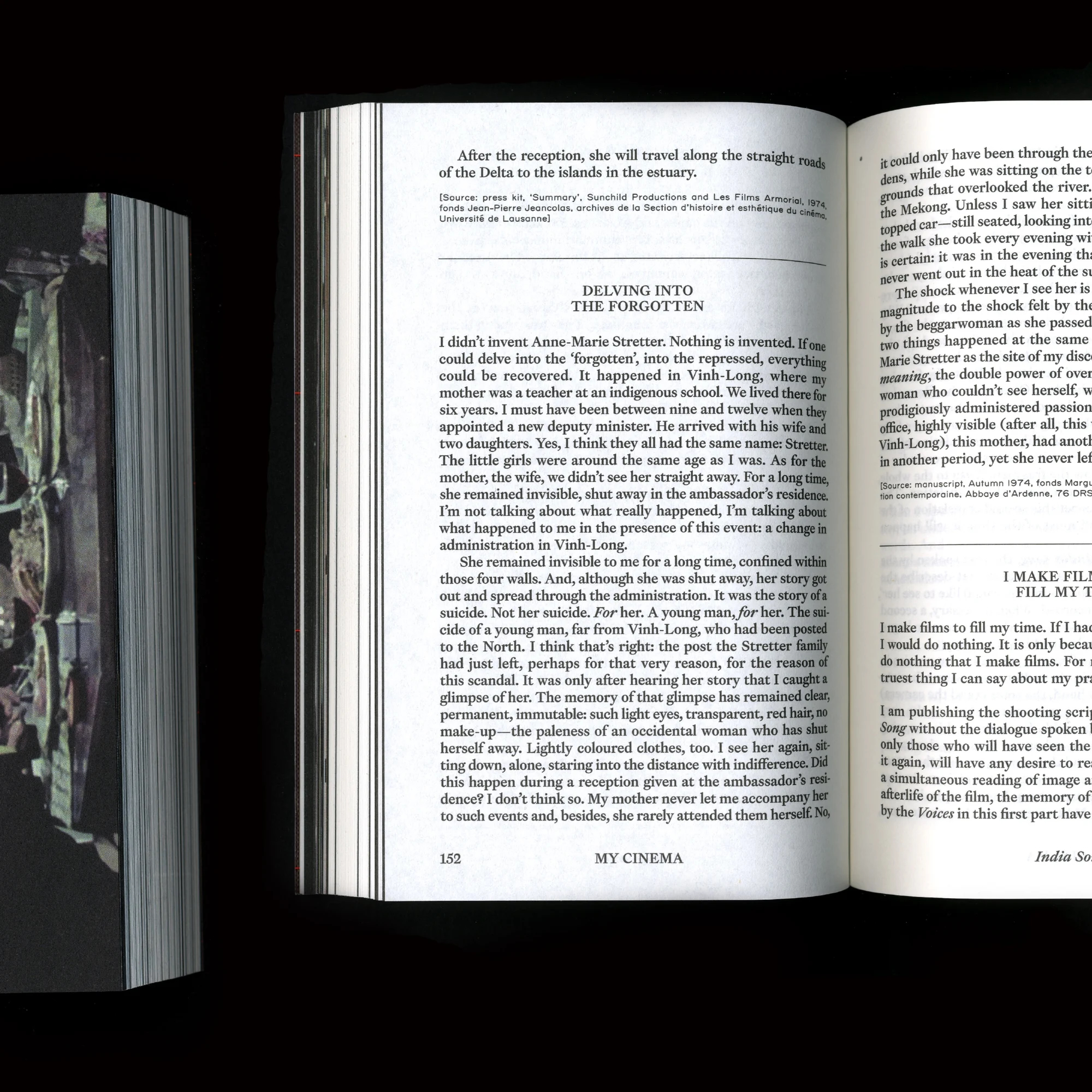
'I make films to fill my time. If I had the strength to do nothing, I would do nothing. It is only because I haven’t the strength to do nothing that I make films. For no other reason. This is the truest thing I can say about my practice.'
❁
Working chronologically through her nineteen films, made between 1966 and 1985, this collection of reflections by Marguerite Duras (1914–1996) includes non-standard press releases, notes to her actors, letters to funders, short essays on themes as provocatively capacious as ‘mothers’ and ‘witches’, as well as some of the most significant interviews she gave about her cinematic and writing practices (with filmmakers and critics including Jacques Rivette, Caroline Champetier and Jean Narboni).
In Duras's hands, all of these forms turn into a strange, gnomic literature in which the boundary between word and image becomes increasingly blurred and the paradox of creating a cinema that seeks ‘to destroy the cinema’ finds its most potent expression.
Yet, Duras is never concerned only with her own work, or even with the broader project of making cinema: her preoccupations are global, and the global crucially informs her perceptions of the way in which she works. With the audiovisual as a starting point, her encyclopaedic associative powers bring readers into contact with subjects as diverse as the French Communist Party, hippies, Jews, revolutionary love, madness and freedom, across four decades of an oeuvre that is always in simultaneous dialogue with the contemporary moment and world history.
‘Both ahead of her time and nostalgically mired in the past, in My Cinema, Duras deconstructs her own methods, going gleefully against the grain in order to “destroy” conventional cinema. A beautifully translated collection of writing by an often maddening genius’ — Lizzie Borden, filmmaker
Extracted in Harper’s and on e-flux
Press:
“Elegantly translated by Shreir, My Cinema travels chronologically through Duras’s film work, collating interviews, production notes, notes to actors, articles, letters, and small essays.” – LARB
“Shreir does a fine job of capturing what Shreir calls the Durassian “flavor of the text.”” – MUBI



With an Introduction by Eileen Myles and an Afterword by Frances Morgan
PEN Translates 2018 award-winner
“And there were other girls who were odd ones too and that was how it was. We loved each other and that was that. I was 18 in May 1968 and it seemed as though my style was becoming popular and that everything was going back to normal, if I dare use the word because I really don’t like the word normal. I prefer the word abnormal but only just, because in the word abnormal you can still hear the word normal and that’s a word I really don't want to hear.”
The filmmaker Chantal Akerman's mother was dying. She flew back from New York to Brussels to care for her, and between dressing her, feeding her and putting her to bed, she wrote. She wrote about her childhood, the escape her mother made from Auschwitz but didn't talk about, the difficulty of loving her girlfriend, C., her fear of what she would do when her mother did die. Among these imperfectly perfect fragments of writing about her life, she placed stills from her films. My Mother Laughs is both the distillation of the themes Akerman pursued throughout her creative life, and a version of the simplest and most complicated love story of all: that between a mother and a daughter.
Press:
“Shreir’s approach not only seems a faithful rendering of Akerman’s candid style, but also feels like a legitimate response to important sides of Akerman’s character that emerge through the text” – Asymptote
“The achievement of [Shreir’s] translation creates anew in English a work pulsing with Akerman’s voice” – LARB
Selected commissions
Boris Charmatz Le chaos et le brouillon, Centre Pompidou Metz, 2025
Vaginal Davis: Magnificent Product, Moderna Museet, 2024
ABSALON ABSALON, ed. Guillaume Désanges and François Piron, CAPC, Bordeaux, 2021
‘Silent Voices: The “Arabs” and Gay Liberation in France’ by Antoine Idier [Essay to appear in Queer Print in Europe, Bloomsbury Press 2021]
Transcription and translation of audiovisual material in which the actress Maria Schneider appears [Film research for filmmaker Elisabeth Subrin. January – September, 2020]
Portrait of a Lady on Fire by Celine Sciamma [Script translation, commissioned by NEON distribution, March 2020]
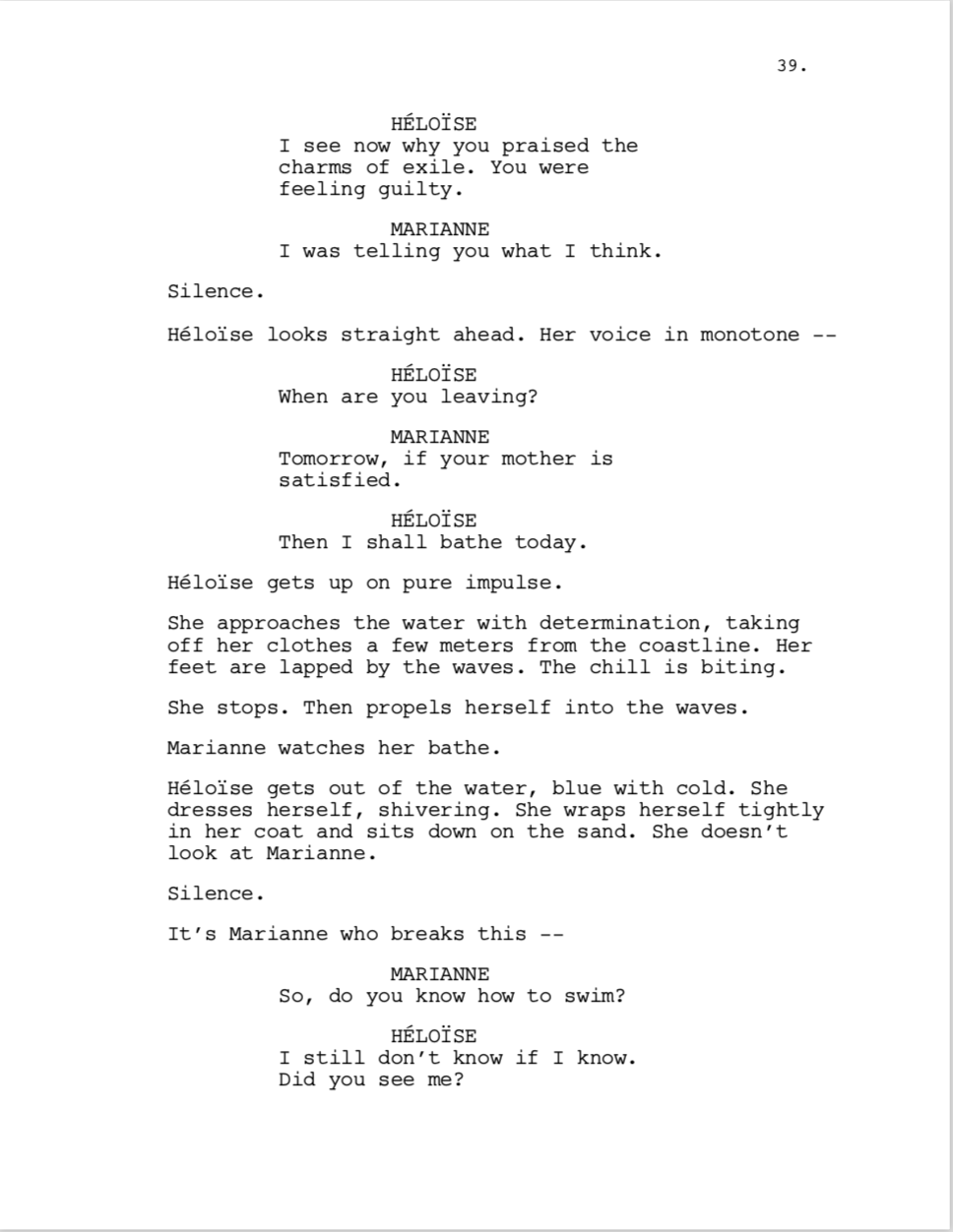
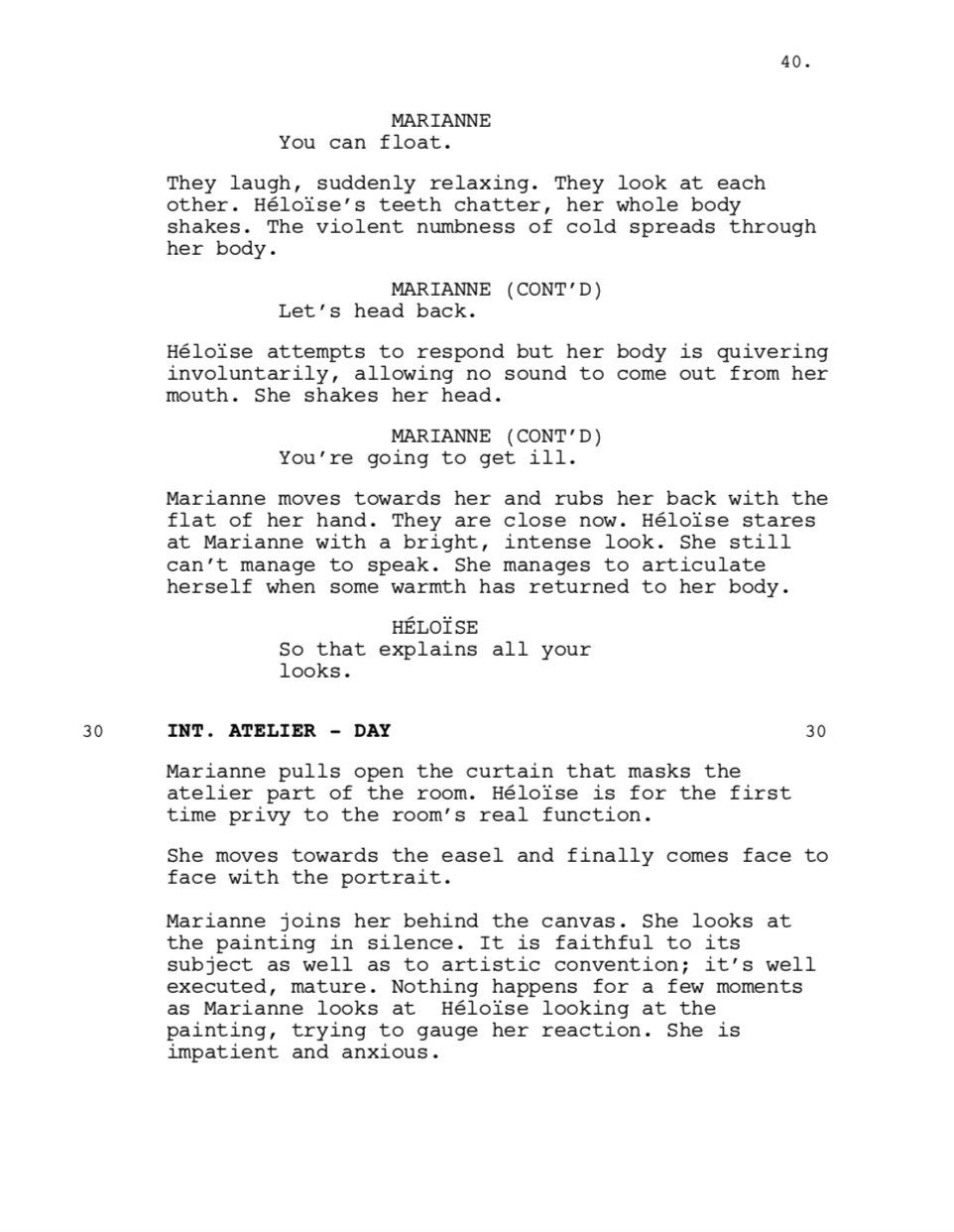
‘EXCLUDE ME IN - INCLUDE ME OUT’ by Émilie Notéris [From This Is My Body, My Body Is Your Body, My Body Is The Body of the Word, ed. Lilou Vidal, Paraguay, March 2020]
Le Camion + Les Mains Négatives by Marguerite Duras [Subtitles for screening at Regent Street Cinema, London, July 2019]
Textes queer, traductions queer at Paris Ass Book Fair [Panel discussion at the Palais de Tokyo,April 2019]